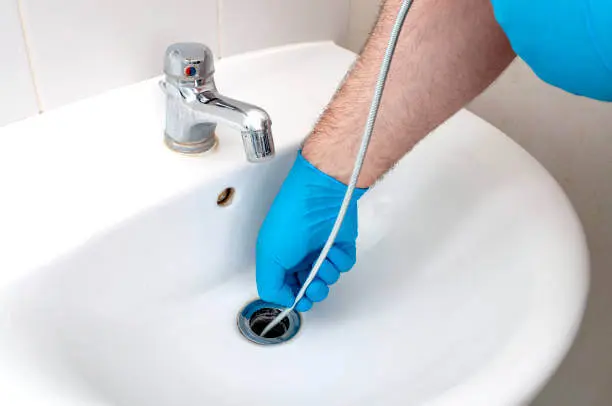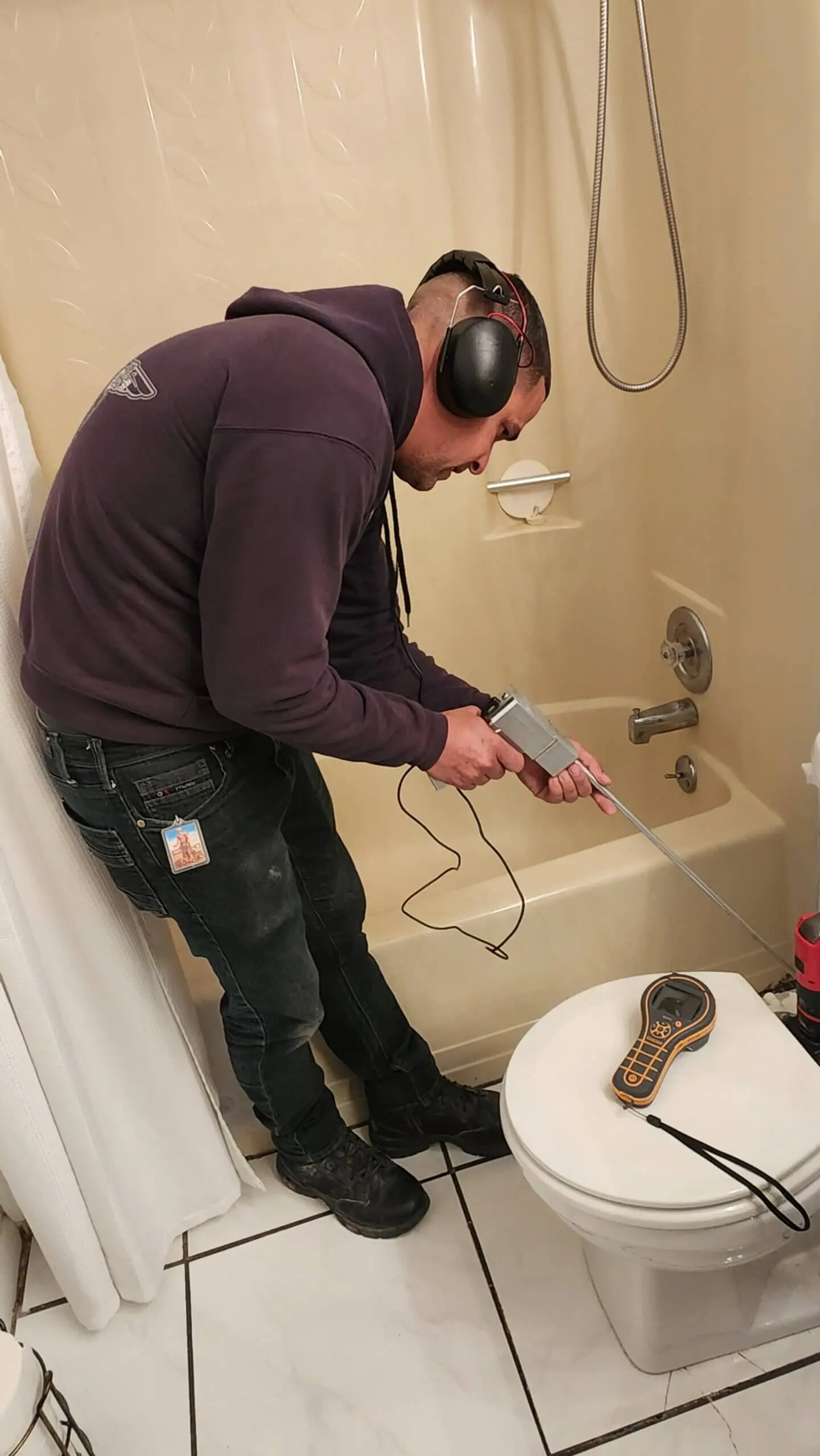What Is The Best Company For Mold Remediation? Exploring Costs and Top Companies in the Industry
Introduction
Mold is a pesky problem that many homeowners face, often creeping in unnoticed until it tiptop-plumbing.com becomes a significant health hazard. With its potential to cause respiratory issues and property damage, mold remediation has become a hot topic among property owners. But the question remains: Is mold remediation worth the investment? If you're grappling with this dilemma, you're not alone. In this article, we will delve deep into the world of mold remediation, exploring costs, benefits, and top companies in the industry. We'll provide you with a comprehensive understanding of why investing in mold remediation might be one of the best decisions you can make for your home.
Is Mold Remediation Worth the Investment? Understanding the Basics
What is Mold Remediation?
Mold remediation refers to the process of identifying, isolating, and removing mold from your property. A professional mold remediation company employs various techniques to ensure that mold spores are eliminated and do not return. This process usually involves cleaning up existing mold growth and addressing moisture problems to prevent future infestations.
Why is Mold Remediation Important?
Ignoring mold can lead to severe consequences:

- Health Risks: Mold exposure can lead to respiratory issues, allergies, and other health complications.
- Structural Damage: Mold can weaken building materials over time.
- Decreased Property Value: Homes with existing mold issues may have lower market value.
Investing in mold remediation protects both your health and your investment.
The Cost of Mold Remediation: A Detailed Breakdown
Average Costs of Mold Remediation Services
The cost of mold remediation can vary widely based on several factors:
On average, homeowners might expect to pay anywhere from $500 to $6,000 for professional services.
Factors Influencing Costs
Here are some critical factors that determine how much you’ll spend:
- Size of Area Affected
- Type of Mold Present
- Necessary Repairs
- Location
Understanding these elements can help you budget effectively for your project.
Cost Comparison: DIY vs. Professional Services
You might be tempted to tackle mold removal yourself; however, consider these points:
| Aspect | DIY Approach | Professional Services | |-------------------------|-----------------------------------|----------------------------------| | Cost | Generally cheaper | Higher initial investment | | Time | Time-consuming | Efficient and timely | | Expertise | Limited knowledge | Trained professionals | | Safety | Potential hazards | Follow safety regulations |
While DIY methods might save money upfront, they often lack effectiveness compared to hiring an experienced mold remediation company.
Top Companies in the Mold Remediation Industry
Company 1: SERVPRO
SERVPRO is one of the leading names in disaster recovery services. Their extensive experience allows them to handle everything from small residential jobs to large commercial projects efficiently.
Key Features:
- 24/7 Emergency Service
- Advanced Technology
- Nationwide Coverage
Company 2: PuroClean
Known as "The Paramedics of Property Damage," PuroClean provides high-quality restoration services across North America.
Key Features:
- Offers Free Inspections
- Commitment to Customer Satisfaction
- Certified Technicians
Company 3: Tip Top Plumbing & Restoration
Restoration 1 specializes in water damage restoration but also offers comprehensive mold removal services.
Key Features:
- Fast Response Times
- Transparent Pricing
- Local Franchise Opportunities
How Does Mold Remediation Work? A Step-by-Step Guide
Step 1: Assessment & Inspection
The first step involves hiring a qualified mold remediation company that conducts a thorough inspection using advanced tools like moisture meters and infrared cameras.
Step 2: Containment
Once identified, containment measures are implemented to prevent spores from spreading during removal.
Step 3: Removal & Cleanup
This phase includes physical removal via vacuuming or scrubbing surfaces with specialized chemicals designed for disinfection without leaving harmful residues behind.
Step 4: Restoration & Repair
After cleaning up the affected areas, any damaged materials—like drywall or flooring—are repaired or replaced as necessary.
Health Risks Associated with Mold Exposure
Common Symptoms of Mold Exposure
Mold exposure can result in a myriad of symptoms including:
For individuals with underlying conditions such as asthma or allergies, these symptoms can be even more pronounced.

Long-Term Health Effects
Chronic exposure can lead to serious health complications such as chronic respiratory diseases or immune system issues—a compelling reason why investing in professional remediation is crucial!
Preventing Future Mold Growth: Best Practices
Control Humidity Levels
Keeping indoor humidity levels below 60% significantly reduces the likelihood of mold growth.
Proper Ventilation
Ensure adequate ventilation throughout your home—especially in bathrooms and kitchens—to promote airflow and reduce moisture retention.
When Should You Consider Hiring a Mold Remediation Company?
Certain situations warrant immediate professional intervention:
If any of these circumstances apply, it's time to contact a qualified expert!
FAQ Section
1. How do I know if I have a mold problem?
Look for visible signs like discoloration on walls or ceilings and musty odors that linger even when windows are open; allergies worsening indoors could also signal an issue!
2. Can I remove mold myself?
While small patches may be manageable using store-bought cleaners, larger infestations should always be handled by professionals due to potential health risks involved during cleanup processes.
3. What types of molds require specialized treatment?
Toxic molds such as black mold (Stachybotrys) need special attention due to their potential health hazards associated with exposure; consult experts if suspected!
4. How long does the remediation process take?
Typically anywhere from one day up until several weeks depending on severity; minor jobs often finish quickly while larger scales may take longer due diligence before completion!
5. Will my insurance cover mold remediation?
Coverage varies widely by policy type; consult your insurer beforehand for specific details regarding coverage limits related specifically towards possible damages incurred through designated events!
6. How often should I have my home inspected for mold?
It's wise—especially after significant water damage incidents—to conduct inspections annually; proactive measures will keep costly repairs at bay down-the-line!

Conclusion
In closing, investing in professional mold remediation isn't just about maintaining property aesthetics; it’s vital for protecting your health and preserving property value! We’ve explored essential factors surrounding costs involved along with highlighting reputable companies within this field that stand ready-to-help mitigate any concerns arising from potentially hazardous conditions stemming from unwanted fungal growths! By staying informed about prevention strategies too—you'll safeguard against future recurrence while ensuring peace-of-mind knowing you've taken every necessary measure towards maintaining safe living environments! So ask yourself again— Is Mold Remediation Worth The Investment? Absolutely!